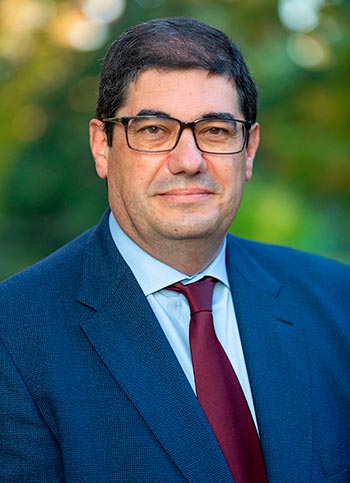19/11/2021
Published in
El Día and El Diario Montañés
Mariano Crespo
Director Academic of Master's Degree in Christianity and Contemporary Culture
 A few days ago I had the opportunity to visit the Victims of Terrorism Memorial Centerinaugurated in Vitoria in June of this year. It is an initiative resulting from the Law of Recognition and Integral Protection of the Victims of Terrorism passed by the Parliament in 2011. As the Center's website states, the goal of that law was to be a "sign of recognition, respect and solidarity with the victims of all manifestations of terrorism recorded since January 1, 1960." Certainly, one finds references to the violence coming from different groups such as GRAPO, FRAP, GAL and those who exercised jihadist violence. However, the most obvious presence is that of the crimes committed by the terrorist group ETA. To all this, two particular circumstances are added: on the one hand, the tenth anniversary of the end of violence by ETA and the premiere at the San Sebastian Film Festival of the film "Maixabel", directed by Icíar Bollaín and centered on the way Maixabel Lasa, the widow of Juan María Jáuregui, murdered by the terrorist group, faced such a tragic event.
A few days ago I had the opportunity to visit the Victims of Terrorism Memorial Centerinaugurated in Vitoria in June of this year. It is an initiative resulting from the Law of Recognition and Integral Protection of the Victims of Terrorism passed by the Parliament in 2011. As the Center's website states, the goal of that law was to be a "sign of recognition, respect and solidarity with the victims of all manifestations of terrorism recorded since January 1, 1960." Certainly, one finds references to the violence coming from different groups such as GRAPO, FRAP, GAL and those who exercised jihadist violence. However, the most obvious presence is that of the crimes committed by the terrorist group ETA. To all this, two particular circumstances are added: on the one hand, the tenth anniversary of the end of violence by ETA and the premiere at the San Sebastian Film Festival of the film "Maixabel", directed by Icíar Bollaín and centered on the way Maixabel Lasa, the widow of Juan María Jáuregui, murdered by the terrorist group, faced such a tragic event.
Hearing the testimonies of the victims of merciless violence is always an overwhelming experience. At the same time, one is plunged into a profound silence: what to say in the face of the suffering of people who have lost a husband, a father, a brother, a son? As Viktor Frankl said, after losing a large part of his family in Auschwitz, "where words say so little, all words are useless. The visitor to the Memorial Center is moved by the contrast between the pain of the loss of concrete, individual and unrepeatable people, and the indifference of those who knew little or nothing about their victims.
Faced with such a scenario, many questions come to mind. Perhaps the most important of all is the one that has to do with the possibility of forgiveness. To forgive those who inflict evil on us goal, does it not mean crossing the line of the unforgivable, not only because of the magnitude of the evil inflicted, but also because those who are really authorized to forgive - the direct victims of the crimes - are obviously no longer in a position to do so? Would it not be arrogant to claim the right to do so on behalf of the victims?
These are not easy questions to answer (and even less so in a brief article like this one). One thing is clear. Forgiveness implies "purifying", healing, the report. As I have tried to show elsewhere(El perdón. Una research filosófica. Ediciones meeting, Madrid 2016) this purification is a process that aims at liberation from all forms of negative feelings without implying a condoning or forgetting of the offense. The foundation of this process is a new stance towards the person or persons who inflicted a wrong goal. In this way, the wounded report is replaced by a reconciled report .
This is what the testimonies gathered at the Center report of the Victims of Terrorism reveal, namely a calm relationship with the past offense. By "purifying" the report, the victims' relatives resemble a light traveler. But here a new question arises: Can the report be "purified" without the cooperation of the perpetrator in the form of repentance, in his distancing himself from his crime? It seems difficult. In this order of things, Max Scheler masterfully showed that we not only dispose over our future, but that we can also dispose, in a certain way, over our past. The reason for this is that "every past experience is not 'closed' as far as its value and meaning are concerned as long as it has not borne all its possible fruits". But repentance is more, much more, than a recognition of responsibility for an act that took place in the past. Authentic repentance consists in an express, active Withdrawal to the offense.
The testimonies of those who have forgiven usually coincide in the liberating, healing character that forgiveness has meant for them. In cases where repentance and asking for forgiveness from the perpetrators of terrorist attacks has been present, forgiveness has been easier. The ability to live without resentment and to offer forgiveness certainly contributes to a life of greater peace in the face of suffering and death. However, it seems difficult for this to be possible without the cooperation of those who have caused the evil. Forgiving them involves an element of trust that is very different from accepting the negative moral value of their action. At final, to build a peaceful report is not to forget, but to acknowledge the wrong done and look to the future.
These and other questions related to the challenges of today's world are addressed at Master's Degree in Christianity and Contemporary Culture.
